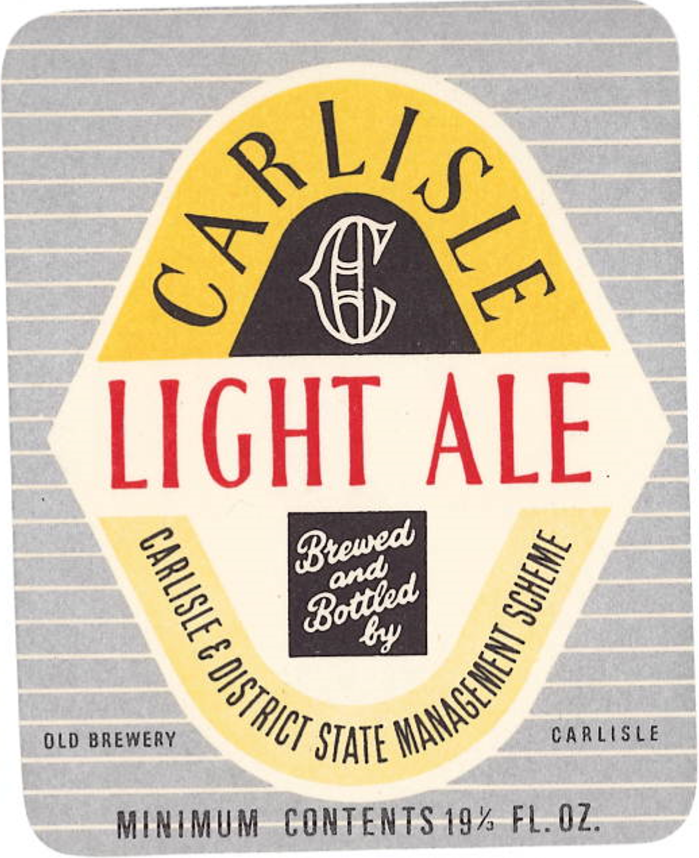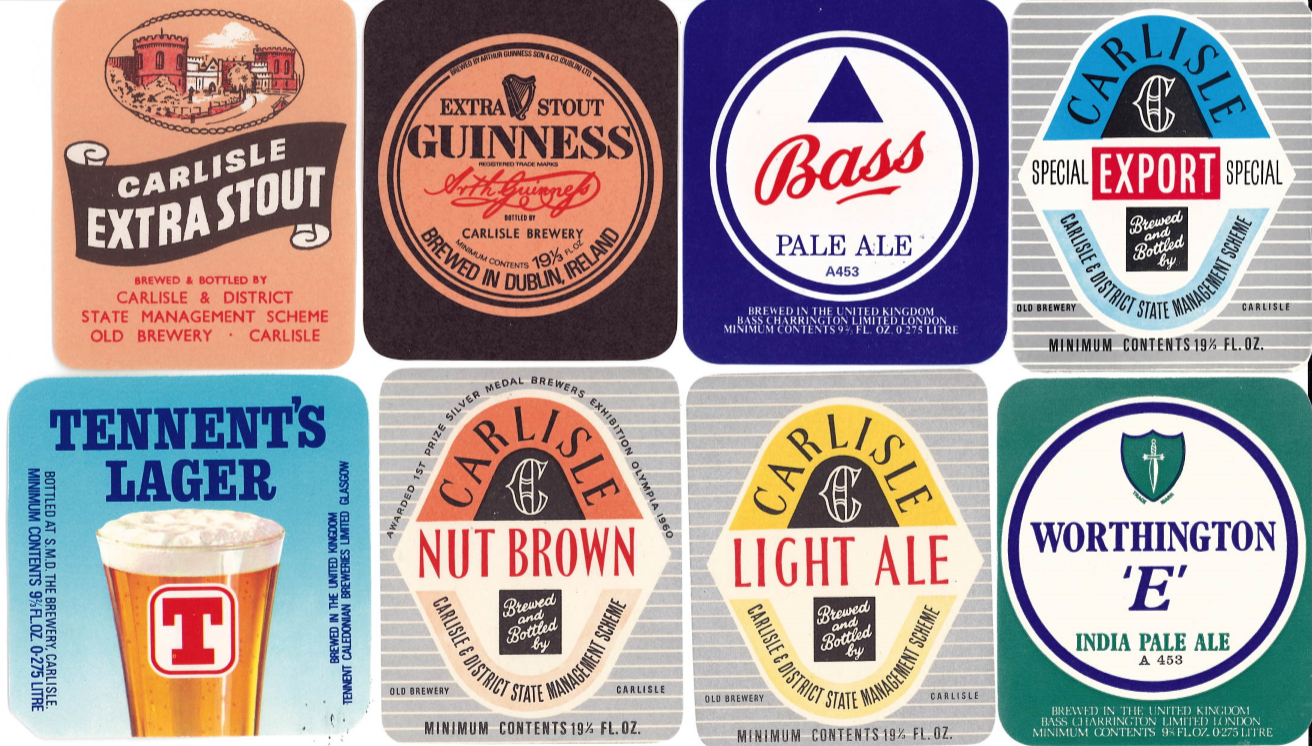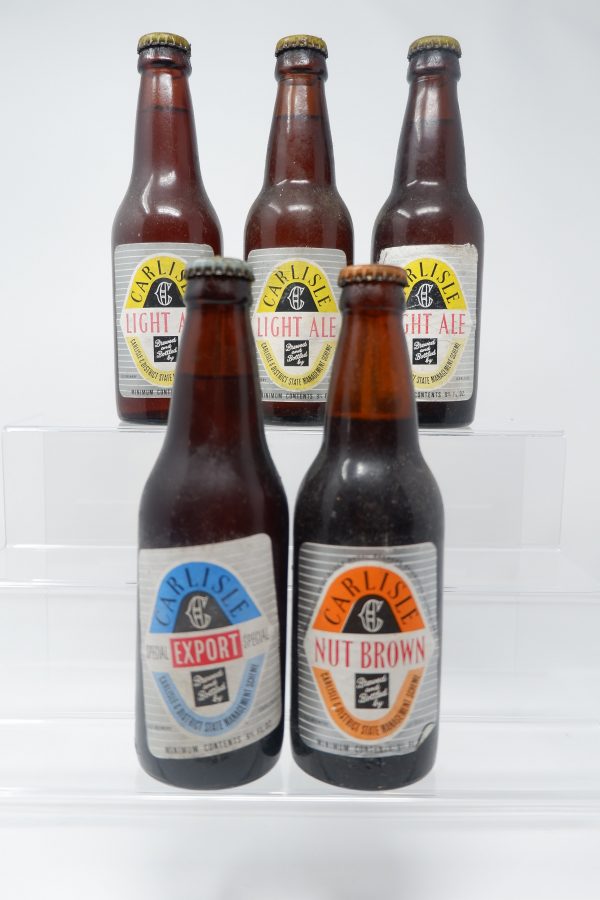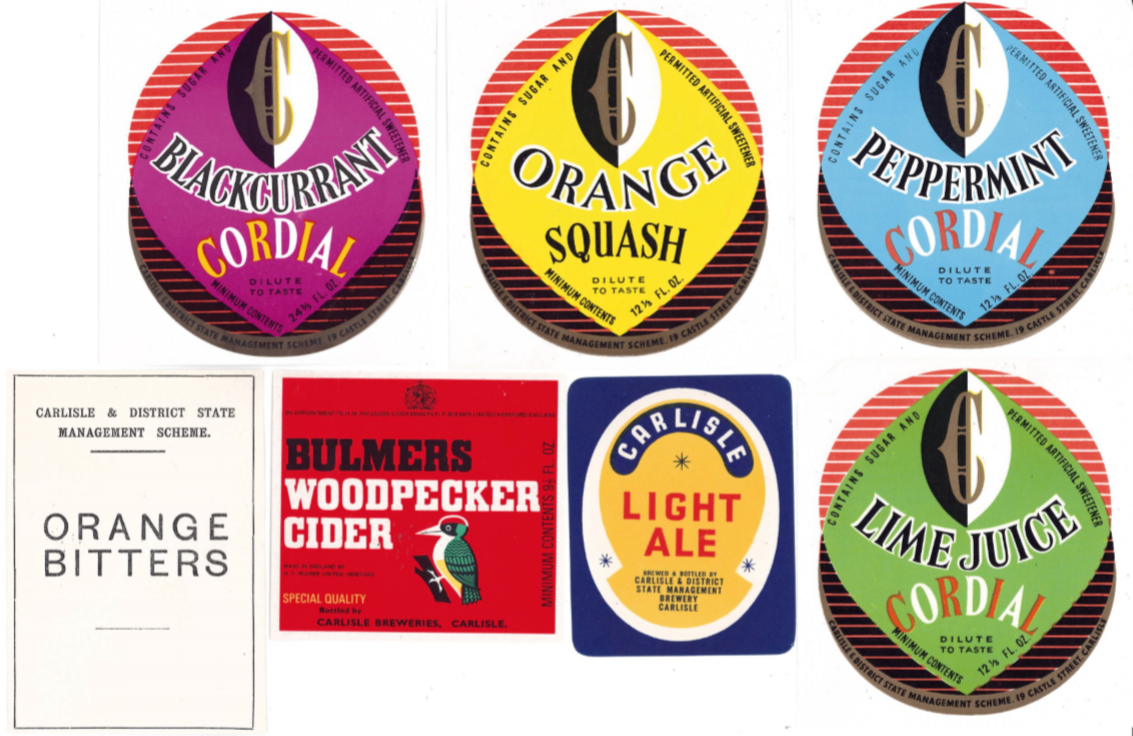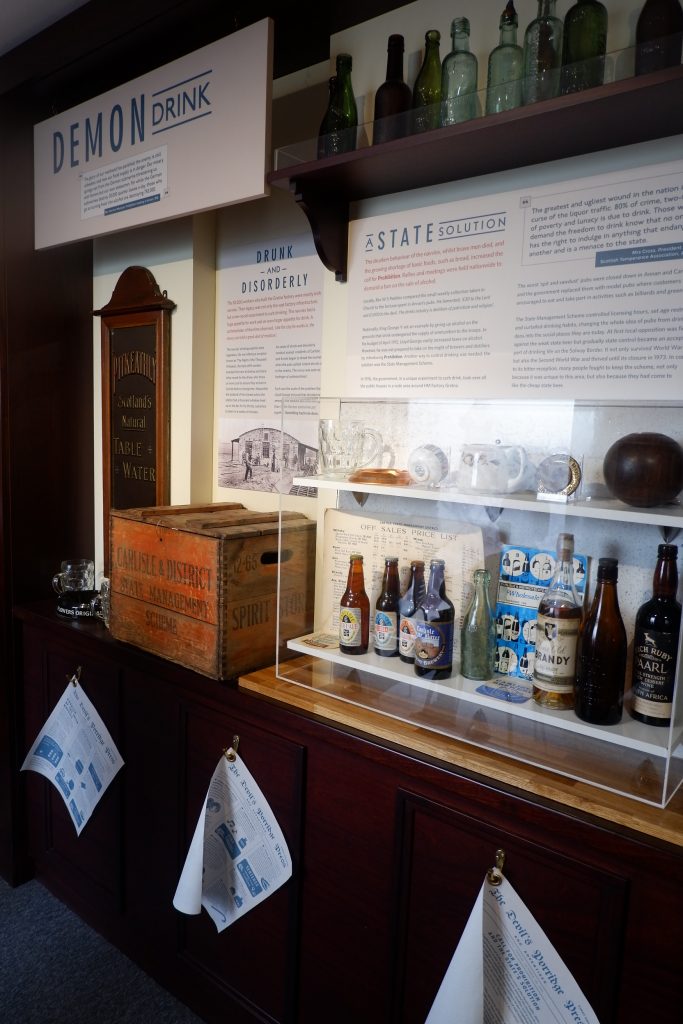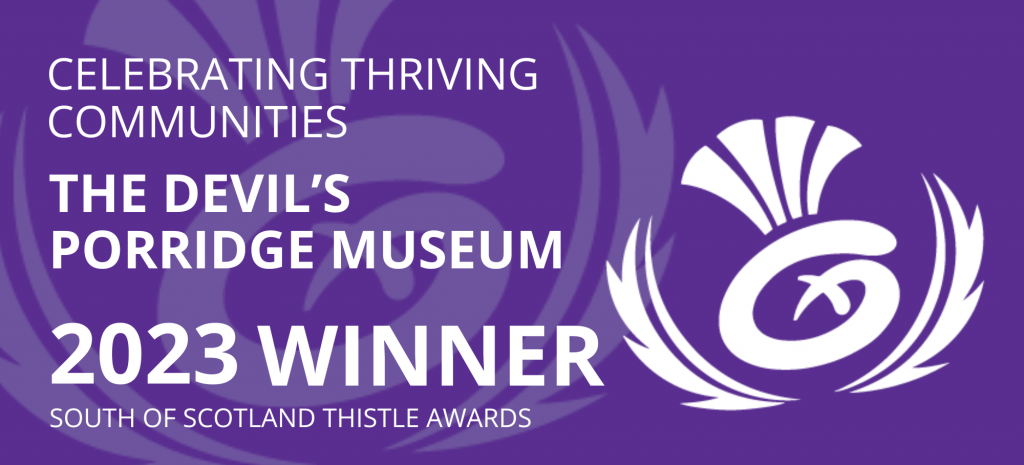A recent visitor to the Museum took a photo during their visit of our State Management of alcohol display (specifically a bottle of Brandy which must date from the 1970’s at least!) here we share a little bit more about this unique social experiment in Cumbria and Dumfries and Galloway.
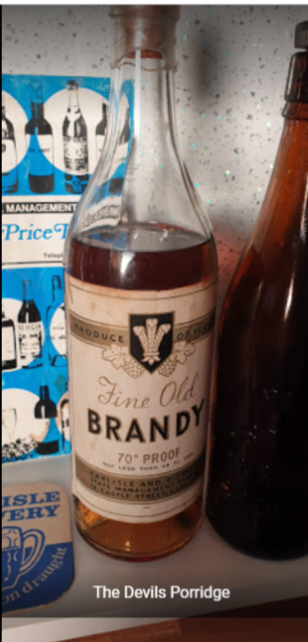
Ten thousand (mainly Irish) navvies built HM Factory Gretna, the greatest factory on earth in World War One. They worked in difficult conditions to build the factory in a hurry and within eight months, it was fully operational and producing the Devils Porridge (cordite, an explosive)
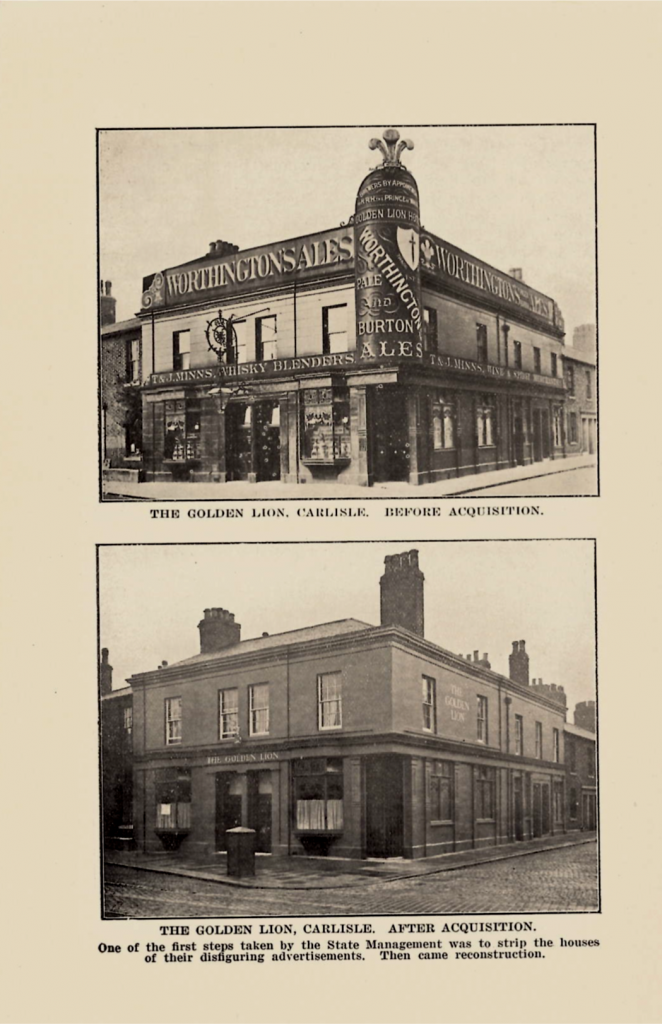
The arrival of these hard working and hard drinking men caused social problems. Alcohol was a particular issue. On one famous night, ‘The Night of a Thousand Whiskies’, a barkeeper in Carlisle lined up 1000 shots of whisky for the navvies to consume. They drank their drink and then roamed around the streets of Carlisle raising hell. The residents of Carlisle and Annan were adamant: something had to change.
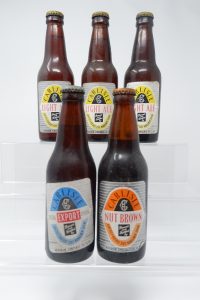
Some bottles of alcohol from the State Management Scheme
So the state took control of the alcohol supply: limiting people to buying one drink at a time, taking over the pubs, inns and taverns to make them more social with bowling greens and restaurants as well as producing their own alcohol (a weaker brew). This control of alcohol became known as the State Management Scheme or the Carlisle Experiment. It was introduced in World War One in response to a perceived immigrant disruption of social life but it remained long after the migrant navvies had left.
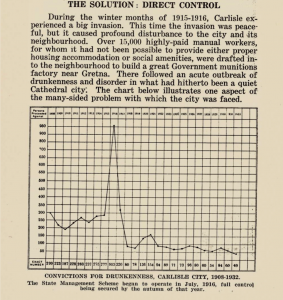
Statistics demonstrating the success of State Management
The State Management of Alcohol in parts of Cumbria and South West Scotland lasted until 1973. It is one of the most tangible impacts of HM Factory Gretna on this region. Many people from across the region were employed within state management.
The Devils Porridge Museum has a display relating to this experiment which showcases different bottles of wine, sherry and alcohol as well as showcasing beer pump stoppers, coasters and even dining sets (there were state managed hotels as well). A recent visitor donated to us a crate of State Managed beer. The bottles are full but I wouldn’t like to drink one! You often wonder what else is hiding out there in someone’s attic or garage and what part of the fascinating story of our region it helps to tell?
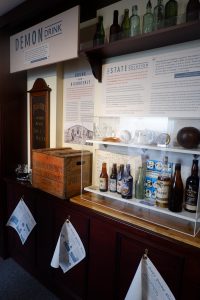
State Management Display in the Museum
